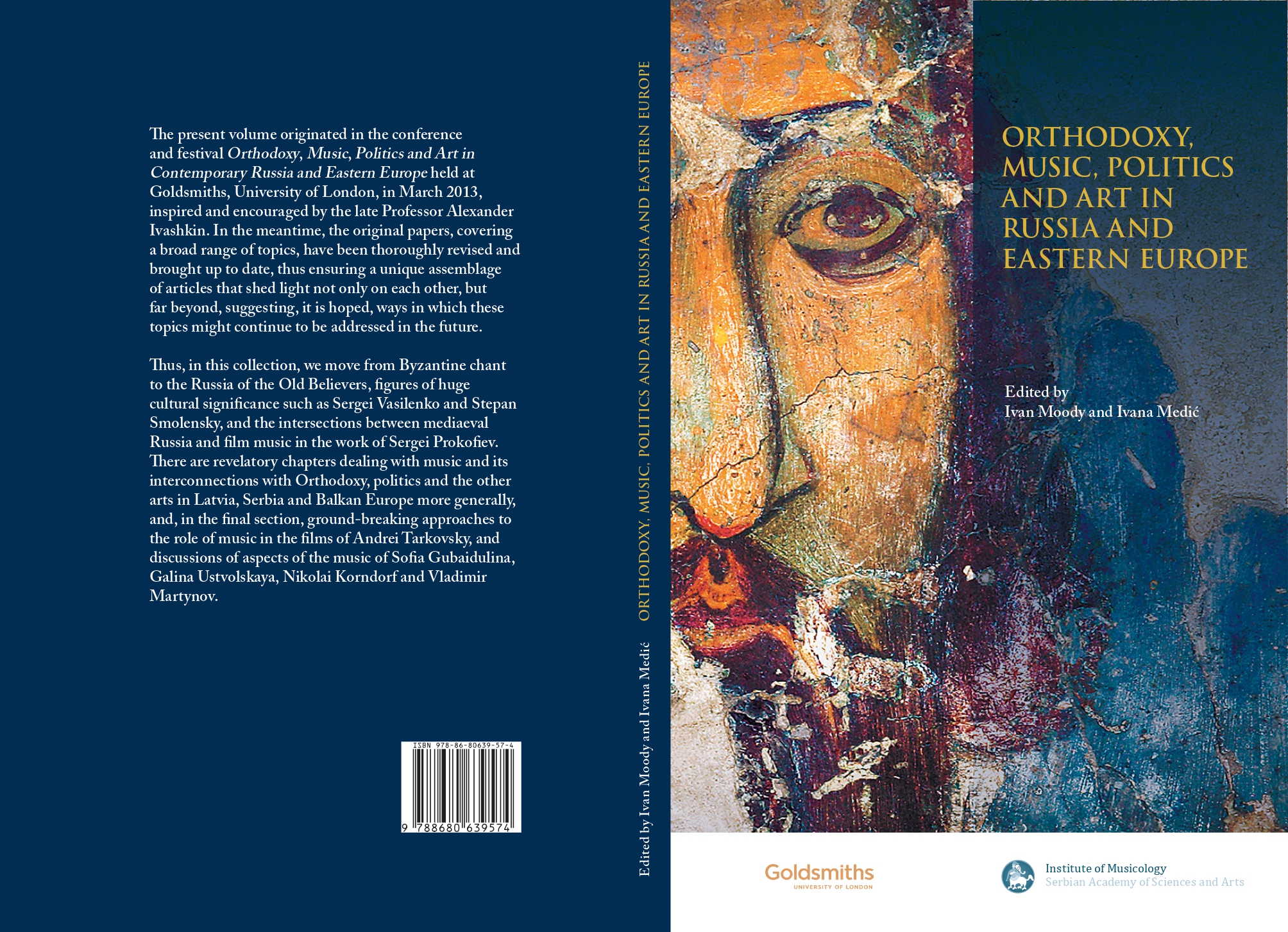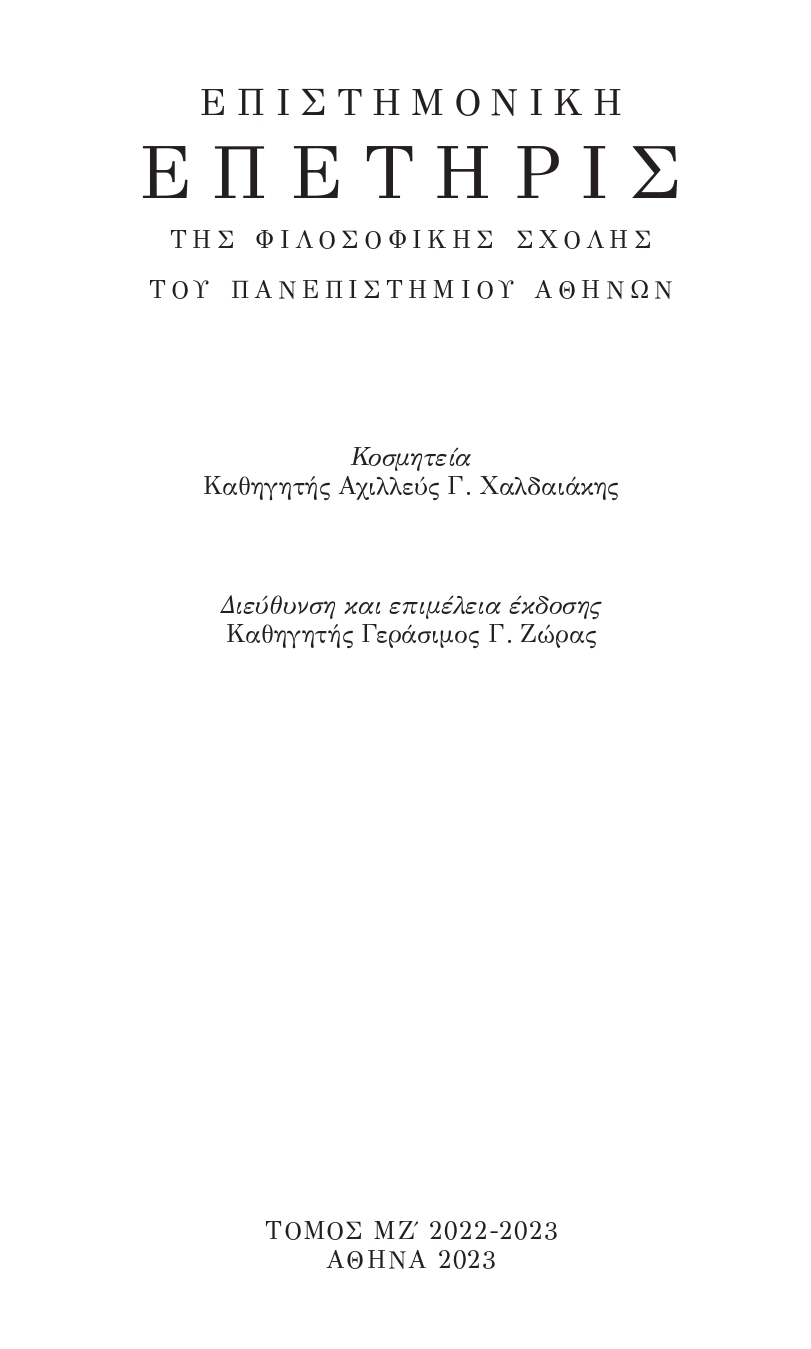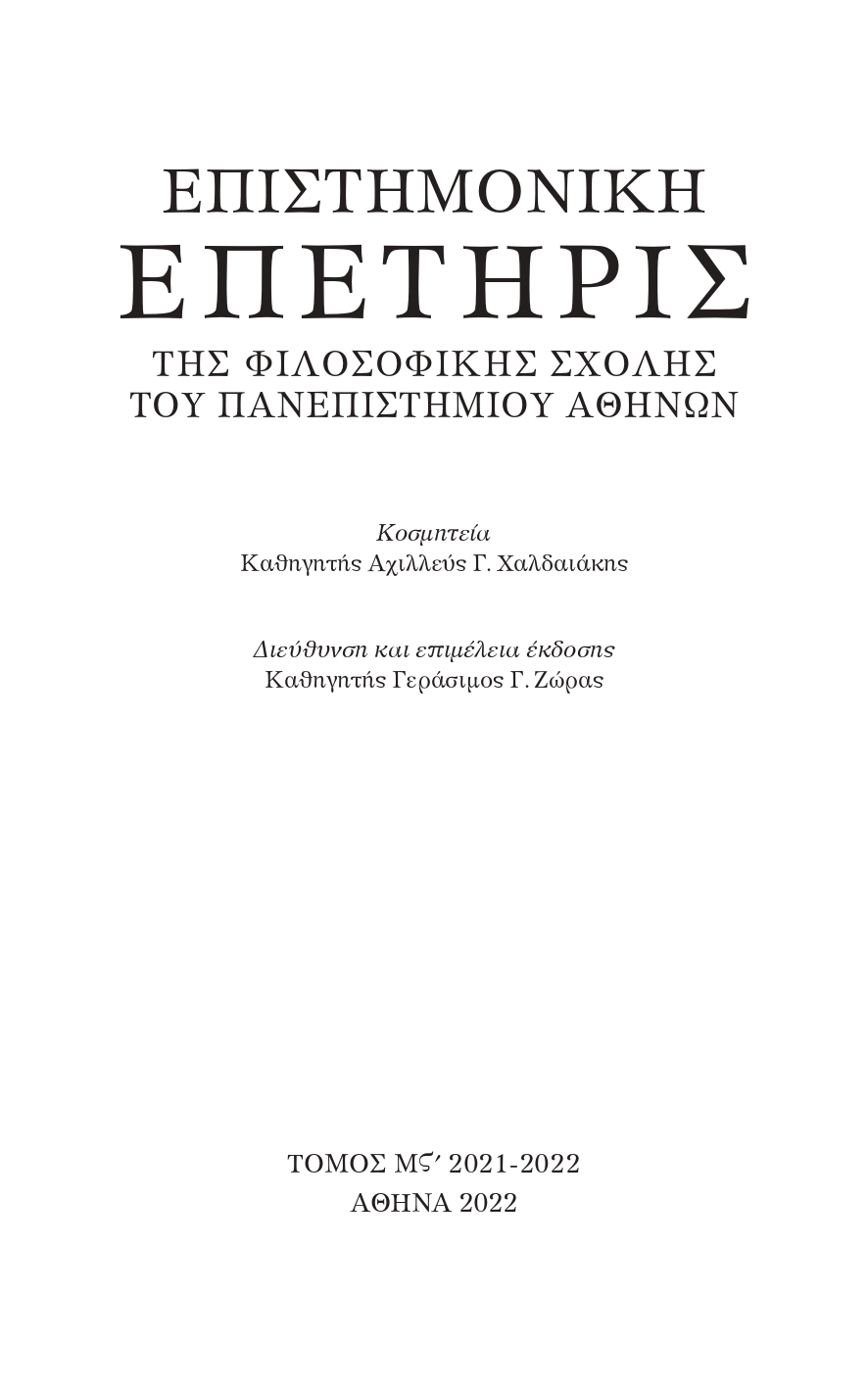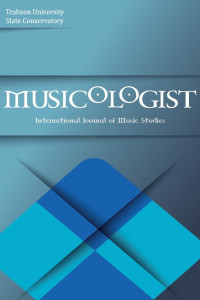“Reflections of Ecclesiastical Policy in Sacred Music: The Case of Patriarch Athanasios V”, in Ivan Moody & Ivana Medić (eds.), Orthodoxy, Music, Politics and Art in Russia and Eastern Europe, London: Centre for Russian Music, Goldsmiths, University of London – Belgrade: Institute of Musicology, Serbian Academy of Sciences and Arts, 2020, pp. 17-57.
The Patriarch of Constantinople Athanasios the 5th is an exceptionally important church figure, widely renowned to the relevant historical research. He was descended from Crete; through historians, he is described as “a wise man, whose outstanding prosperity was a scandal to the clergymen of the time; he would read European books and induced the people towards education”, whereas he is reported as “an expert of Greek, Latin and Arabic dialect, being in parallel perfect as far as music is concerned”. Indeed he is nowadays known to us as a complete and perfect musician mainly based upon his only till today found handwritten musical codex Sinai 1282 (a book contained John Kladas’ Akathistos Hymn melodies), a manuscript that is signed in f. 119r with the following note: “the present Oikoi were written by me, Athanasios Margounios from Crete, bishop of Tornovo, at the year 1687 of June 1st, while I was at the prison because of Patriarch Dionysios’ spitefulness”. It becomes evident in this indirect way the hardships that Athanasios suffered “due to Patriarch Dionysios’ spitefulness” [we refer to Patriarch Dionysios IV, the so-called Mouselimis (+1696), who was elected Patriarch five times; he was chasing Athanasios, for unknown reasons till today, during his fourth Patriarchy (March of 1686-12th of October 1687)]; in addition, it is already noticed that “Athanasios’ oeuvre (like for instance, his well-known Kalophonic Heirmoi, especially if we take into consideration their text) owes its formation to the hardships he had suffered during his restriction to Mountain Sinai”. This implied effect, mirroring, and reflection of any ecclesiastical policy upon the general artistic creation of the Sacred Music is been analyzed in the present paper, taking as a basis the case of Athanasios.



